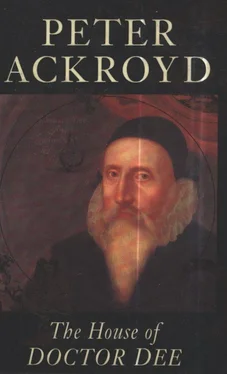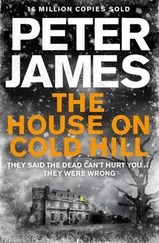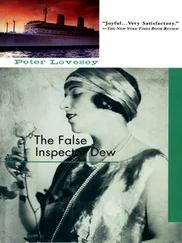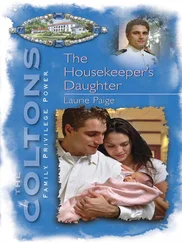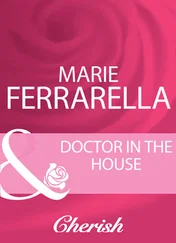Peter Ackroyd - The house of Doctor Dee
Здесь есть возможность читать онлайн «Peter Ackroyd - The house of Doctor Dee» весь текст электронной книги совершенно бесплатно (целиком полную версию без сокращений). В некоторых случаях можно слушать аудио, скачать через торрент в формате fb2 и присутствует краткое содержание. Город: London, Год выпуска: 1993, ISBN: 1993, Жанр: Историческая проза, на английском языке. Описание произведения, (предисловие) а так же отзывы посетителей доступны на портале библиотеки ЛибКат.
- Название:The house of Doctor Dee
- Автор:
- Жанр:
- Год:1993
- Город:London
- ISBN:9780241125007
- Рейтинг книги:5 / 5. Голосов: 1
-
Избранное:Добавить в избранное
- Отзывы:
-
Ваша оценка:
- 100
- 1
- 2
- 3
- 4
- 5
The house of Doctor Dee: краткое содержание, описание и аннотация
Предлагаем к чтению аннотацию, описание, краткое содержание или предисловие (зависит от того, что написал сам автор книги «The house of Doctor Dee»). Если вы не нашли необходимую информацию о книге — напишите в комментариях, мы постараемся отыскать её.
The house of Doctor Dee — читать онлайн бесплатно полную книгу (весь текст) целиком
Ниже представлен текст книги, разбитый по страницам. Система сохранения места последней прочитанной страницы, позволяет с удобством читать онлайн бесплатно книгу «The house of Doctor Dee», без необходимости каждый раз заново искать на чём Вы остановились. Поставьте закладку, и сможете в любой момент перейти на страницу, на которой закончили чтение.
Интервал:
Закладка:
'What? Is it you? Are you here, after all?' The old woman had come out of the telephone booth, and was shouting after me. I walked away as quickly as I could. 'You know about all the shit on the streets, don't you? It's not the dogs. It's the old-age pensioners.' She started laughing as I made my way towards Fetter Lane and High Holborn. There is a video shop by the entrance of Dyer's Rents and, as I hurried towards it, I could see a dozen screens glowing with the same picture; there was so much light and energy here that the shop window itself might have burst open or exploded. When I came closer still, having looked back to make sure that she was not following me, I could see many stars and planets hurtling past the screens. It must have been one of those science fiction epics of the seventies or early eighties, and there was a young man watching the cosmic adventure with a look of absolute concentration. He had put his arms out against the plate glass window, and it looked as if he were being crucified by all that brightness. I wanted to tell him that it was all delusion, a trick of the cinematographer, but for him it was probably a true vision of the universe. I said nothing and walked on.
I can tell you when I first began to understand London. I must have been fifteen or sixteen, and I was travelling on the bus which goes from Shepherd's Bush to Dulwich; the sky above Notting Hill Gate and Queensway was covered by cloud, but suddenly those clouds broke and a shaft of sunlight shone down upon the metal rail in front of me. I could not turn my eyes from that intense brightness and, as I gazed into the depths of the light and the shining metal, I was filled with a sense of exhilaration so profound that I left my seat and jumped off the bus as it came to a halt by Marble Arch. I felt that some secret had been divulged to me — that I had glimpsed some interior life and reality which glowed within all things. I thought of it as the fire-world, and as I turned into Tyburn Way I believed that I would be able to find traces of it everywhere. But that fire was also within me, and I found myself running through the streets as if I possessed them. Somehow I had been present at their beginning; or, rather, there was some presence within me which had always existed in this soil, this stone, and this air. That original fire has left me now, which is perhaps why I seem such a stranger to myself; slowly, over the years, the city has darkened within me.
But there were certain places to which I still returned. Sometimes I found myself walking down Kingsland Road and stopping at the old Hoxton asylum by Wharf Lane; it was here that Charles Lamb used to take his sister, at her own request, and once I tried to track their footsteps through the fields which are now concealed beneath the stone pavements of the area. She always carried her strait-jacket with her, and they wept when they came up to the gate of the asylum. I stopped where they had stopped, just before the archway, and whispered my own name. I often revisited Borough High Street, and followed its route from Southwark Bridge to the site of King's Bench Prison and the Marshalsea; this journey always weighed heavily upon me, and yet I continued to make it. There were times when I walked around the area until I was lost and tired and unable to think. I wanted the Borough to bury me, to hold me down, to suffocate me. Surely among all the dark shapes of its past, there was one in which I could be concealed? But not all my haunts were so oppressive. There was one place in particular where I knew I could find rest: again and again I returned to Fountain Court within the Temple where, beside a small circular pond, a wooden bench had been placed beneath an elm tree. The sense of peace, even in the middle of the city, was so strong that I presume it came from some powerful event in the past. Or perhaps it was simply that people like myself had always chosen this place, and over the years it had accepted the stillness of its visitors. I often think about death as if it were a state such as this — as if I were waiting beside an elm tree and a pond. My father had approached his own death peacefully enough, almost happily. I remember him whistling in the bathroom, even when he knew that he had only a few months of life ahead of him. He never complained, and showed no signs of self-pity or anxiety. It was as if he possessed some information about the next stage of his journey; he was a Roman Catholic, as I said, but he seemed to harbour some more private belief which reassured him. And once again, as I came out into Red Lion Square from High Holborn, I considered the old house which he had bequeathed to me. Why was it that, during all my walks through the city, I had never seen Cloak Lane or its vicinity? Why had I shunned, or forgotten, Clerkenwell?
I had come up to the fragment of the old stone pillar which marks the site of the Red Lion Fields massacre of June 1780; at the time of the Gordon Riots a group of children were killed by troops here, and three months later John Wilkes started a subscription for this memorial. The stone was now so cracked and worn that it might have been a piece of nature in decay but, on an impulse, I knelt down and touched it. I had another connection with the place, after all. Only a few yards away, on a stall by Red Lion Passage, I had first come across the work of Piranesi. It was a book with many of his etchings reproduced; its title was Imaginary Prisons, but as far as I was concerned there was nothing imaginary about them at all. I recognized this world at once; I knew that it was my city.
I took the book home with me — it must have been six or seven years ago now, but I still remember the excitement with which I turned its pages. In the first etching two small figures were standing in front of a vast stone staircase; there was nothing but stone all around them, spiralling upwards into galleries, arches and domes. Piranesi's world was one of endlessly ruined masonry, of labyrinthine passages and barred windows; here were blocks of stone, massive, dark, their textures swamped in shadow; here were giant recesses of brick, huge banners of tattered cloth, ropes, pulleys, and wooden cranes that towered up to broken balconies of stone. The artist often used the framing device of a ruined arch or gateway, so that I was drawn into the scene and knew myself to be part of it; I was in prison, too.
Everything looked as if it had been abandoned — the bridge hanging precariously between two decayed towers, the rotten beams, the cracked windows, the massive porticoes with inscriptions too faded to read. A giant race of builders had declined and died, leaving these monuments behind them. But no, that could not be true. There was a sense of continuing power, of living force, here. It was beyond death; it was the condition of the world. I was looking at the last etching, which showed an indeterminate small figure mounting a stone staircase only to be confronted by another steep bulwark of stone. In this tiny figure I thought I could see something of my own self, when my father tapped me on the shoulder. He must have been watching me for a few moments because he said, softly, 'It needn't be like that, you know.' That was all he said, and then he put his hand upon the back of my neck. I shook him off and looked down at the etching again, only to see another flight of steps that seemed to lead down into an abyss of stone. It occurred to me then that this was really a city under the ground. It was the eternal city for those who are trapped in time. I was still kneeling beside the memorial in Red Lion Square, but now I seemed to be entering the stone wall of the basement in Cloak Lane. I was becoming part of the old house.
I got up quickly, brushed the dirt from my clothes, and walked out towards New Oxford Street and Tottenham Court Road. There is a patch of cobbles just by Bloomsbury Square, where a row of new Mercury telephones had been placed, and in the dark I stumbled over them. 'London stone is different from this,' Daniel Moore had told me when I showed him Imaginary Prisons. 'You have to learn Italian just to look at Piranesi.' I had been trying to share my enthusiasm with him, but he simply peered at the reproductions with something like distaste. 'He's a sentimentalist,' he said, 'not a visionary.'
Читать дальшеИнтервал:
Закладка:
Похожие книги на «The house of Doctor Dee»
Представляем Вашему вниманию похожие книги на «The house of Doctor Dee» списком для выбора. Мы отобрали схожую по названию и смыслу литературу в надежде предоставить читателям больше вариантов отыскать новые, интересные, ещё непрочитанные произведения.
Обсуждение, отзывы о книге «The house of Doctor Dee» и просто собственные мнения читателей. Оставьте ваши комментарии, напишите, что Вы думаете о произведении, его смысле или главных героях. Укажите что конкретно понравилось, а что нет, и почему Вы так считаете.
